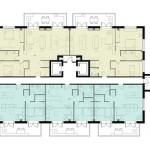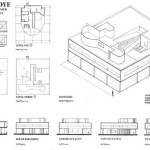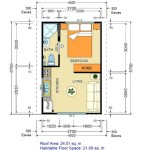House Plan Approval Procedure in Sri Lanka: Essential Aspects to Consider
Acquiring approval for your house plan is a crucial step in the construction process in Sri Lanka. The approval process involves various requirements and procedures, ensuring that the proposed construction adheres to established standards and regulations. Understanding the essential aspects of the house plan approval procedure can streamline the process and prevent potential delays.
1. Local Authority Submission:
The first step is to submit your house plan to the relevant local authority, typically the Municipal Council or Divisional Secretariat. They will assess the plan against the local building code, zoning regulations, and other applicable laws. The local authority will issue a building permit if the plan meets the required standards.
2. Design Compliance:
The house plan must adhere to the specific design criteria outlined in the local building code. These criteria cover aspects such as setbacks from property lines, height restrictions, and compliance with environmental regulations. Engaging a qualified architect or engineer is highly recommended to ensure that the plan meets these requirements.
3. Environmental Impact Assessment:
In certain cases, an Environmental Impact Assessment (EIA) may be necessary if the construction project is expected to have significant environmental implications. The EIA evaluates the potential environmental impacts and proposes mitigation measures to minimize them. An environmental consultant can assist with this process.
4. Approval Process Timeline:
The approval process can take several weeks or months, depending on the complexity of the plan and the availability of resources at the local authority. It is crucial to factor this timeline into your construction schedule. Regular follow-up with the local authority can provide updates on the progress of your application.
5. Building Permit Requirements:
Once the house plan is approved, the local authority will issue a building permit. This permit authorizes the commencement of construction and specifies the conditions that must be met during the construction process. Adhering to these conditions ensures the safety and integrity of the building.
6. Registered Contractors:
In Sri Lanka, it is mandatory to engage registered contractors for construction projects. The National Construction Association of Sri Lanka (NCASL) maintains a registry of qualified contractors. Hiring a registered contractor ensures that they have the necessary expertise and experience to execute the construction project.
7. Compliance Monitoring:
Local authorities periodically conduct compliance inspections during the construction phase to ensure that the project is progressing as per the approved plan and building permit. They may also inspect the structural stability, electrical and plumbing systems, and overall adherence to safety regulations.
By following these essential aspects, homeowners can navigate the house plan approval procedure efficiently and move smoothly into the construction phase. Seeking professional guidance, submitting a comprehensive plan, and staying informed about the approval process can save time, avoid delays, and result in a safe and compliant construction project.

House Contractors Council Approval Okithma Construction

House Contractors Council Approval Okithma Construction

House Contractors Council Approval Okithma Construction

The Urban Development Authority

How To Get The Approval Building Plans

House Plan Approval In Sri Lanka Uda Planning Permission Kedalla Lk
Investment Approval Process In Sri Lanka Scientific Diagram

House Plan Approval In Sri Lanka Uda Planning Permission Kedalla Lk

How To Approve Your Building Plan Heave Lk

How To Approve Your Building Plan Heave Lk








